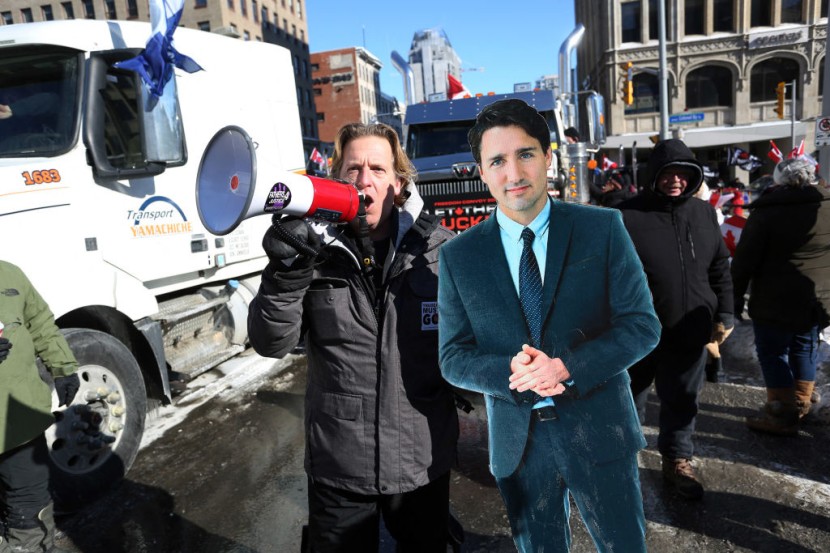
Anti-vaccine demonstrators have brought swaths of the country to a halt, and Prime Minister Justin Trudeau has used emergency powers to repress them.
Even though the blockades are now in their third week, the Canadian Prime Minister's patience has finally run out as he unveils a harsh package of measures aimed at truckers who have occupied key cities and disrupted trade across the border with the United States.
What Is the National Emergency Act?
The Emergencies Act, which provides the Canadian government broad powers in the case of a danger to national security, contains the provisions. Invoking this act for just the second time since the war was a first for the United States government. After a series of terrorist assaults by Quebec separatists in 1970, Justin's father, Pierre Trudeau, employed the War Powers Act, as it was known at the time.
Police will be authorized to control public gatherings and blockades under the new law. Trucks that are part of the "freedom convoy" will be towed away by police. Other actions, including suspending their bank accounts and voiding their insurance, are being taken to stop the rebel truckers from receiving funds.
Large transfers of money to truckers will have to be reported to Canada's financial watchdog Fintrac by crowdfunding platforms that have routed millions of dollars to the truckers. A few hours after police in Alberta detained 11 people and confiscated a stash of guns near the US border, Trudeau announced the action.
The arrests raised suspicions that some Canadian engaging in the blockage was more concerned with driving Trudeau out of power than with his government's response to the pandemic. The law will be in effect for 30 days, but it might be revoked sooner, according to the Telegraph.
In times of national catastrophe, the Emergencies Act of 1988 gives the government additional authority. The issue must meet a high standard, namely an "urgent and critical crisis that poses a substantial threat to Canadians' lives, health, or safety." The laws can only be invoked by the Cabinet if the emergency is beyond the provinces' ability to manage it properly and cannot be handled by any existing federal law.
The Public Welfare, Public Order, International, and War Emergencies Acts define four categories of emergencies: public welfare emergencies, public order emergencies, international emergencies, and war emergencies. If the law is enacted this week, it will most certainly fall under the heading of "public order." Lawful demonstrations do not qualify, and the standards are severe.
Instead, according to the Canadian Security Intelligence Service Act, the circumstance must be viewed as a danger to the country's security. In this law, there are four possibilities that can occur:
- Espionage or sabotage
- Foreign-influenced activities
- Threats or use of acts of serious violence for political, religious or ideological objectives
- Covert, unlawful acts intended to undermine or overthrow the constitutionally established government
None of these four eventualities have been evident in Ontario, thus it's unclear which scenario Mr. Trudeau would use to justify the deployment of the Emergency Act. Before presenting the proposal to Parliament, the prime minister must confer with the premiers of any affected provinces before enacting the law. The declaration will be repealed if the act does not pass a vote there, BBC News reported.
Read Also : Canadian PM Justin Trudeau Uses Emergency Powers Against Canadian Truckers Protesting Over Vaccine Mandates
Canada Vows Support for Ottawa Businesses
Trudeau also promised to help companies in Ottawa that have been harmed by the ongoing downtown protests. Because of the protest's implications, the Rideau Center mall and several other small businesses have stayed closed.
More information on the money will be made available in the coming days, according to Trudeau. Meanwhile, Chrystia Freeland, the Deputy Prime Minister of Canada, promised a crackdown on the demonstrators' financing, including suspending the accounts of any firms whose vehicles are being utilized in the blockades and protests.
In an interview with reporters, Public Safety Minister Marco Mendicino said the incident on Wellington Street was more than a little disruption to people's lives, as per CTV News.
Related Article : Canada's Justin Trudeau Calls Truckers Protest "Unacceptable"; Protesters Vow To Stay Put Until Prime Minister Resigns
@YouTube








